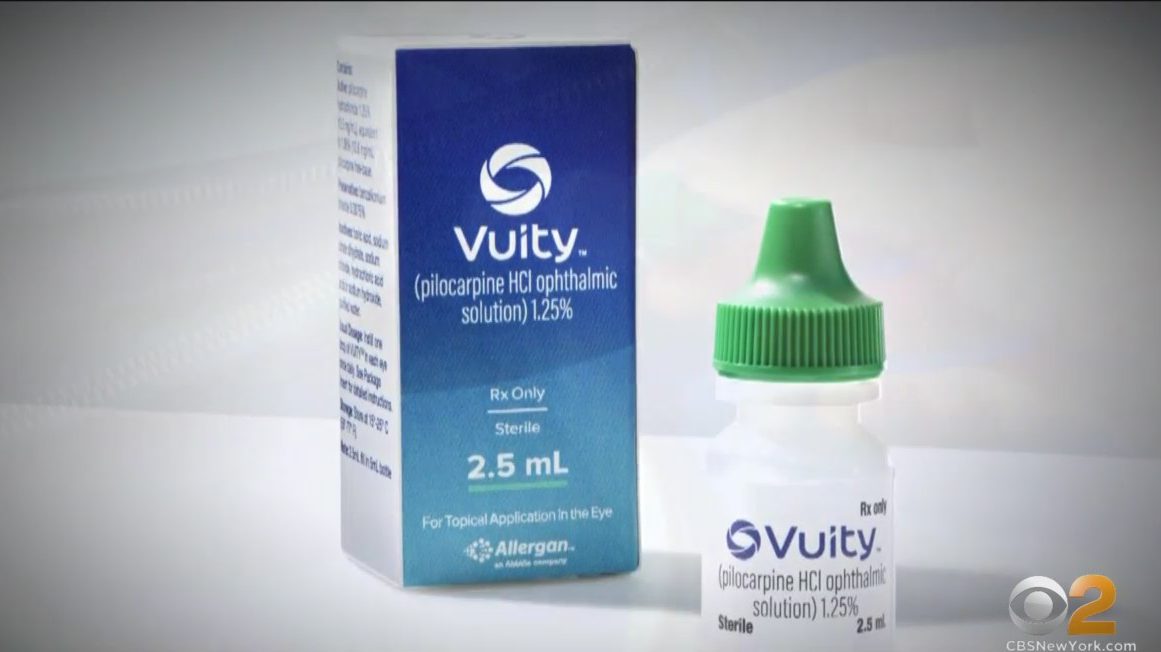NEW YORK (CBSNewYork) — The FDA has recently approved a prescription eye drop to improve close-up vision.
As CBS2’s Dr. Max Gomez reported Thursday, it could be life changing medication because most people are certain to have blurry, close-up vision after their mid-40s.
Toni Wright leads a double life on her Western Pennsylvania farm – partly checking on her chickens or cows and working from home as an online retail consultant.
“I have readers everywhere,” said Wright.
It’s the only way Wright, 54, can read things up close.
“I was in denial, because to me, that was a sign of growing older,” Wright said.
In 2019, Wright’s doctor told her about eye drops with the potential to temporarily correct her close-up vision.
“I would not need my readers as much, especially on the computer, where I would always need to have them on,” Wright said.
Wright was one of 750 participants in a clinical trial to test the drug Vuity, the first FDA-approved eye drop to treat age-related blurry, near vision – also known as presbyopia.
“Vuity utilizes the eye’s natural ability to reduce its pupil size,” said Dr. George Waring, the trial’s principal investigator. “Reducing the pupil size expands the depth of field or the depth of focus, and that allows you to focus at different ranges naturally.”
One drop in each eye provides sharper vision for six to 10 hours.
A spokesperson for Vuity said the medicine will cost about $80 for a 30-day supply. It works best in people ages 40-55. Side effects in the three-month trial included headaches and red eyes.
“It’s definitely a life changer… just a convenience to have that option of putting the drops in and being able to go,” said Wright.
The prescription drops are for mild to intermediate cases and are less effective after age 65.
MORE NEWS: Pediatric COVID Cases Spiking As Parents Rush To Vaccinate Children Ahead Of Holiday Season
The maker cautions against using the drops when driving at night or performing activities in low-light conditions because the narrowed pupil does reduce the amount of light that enters the eye.
